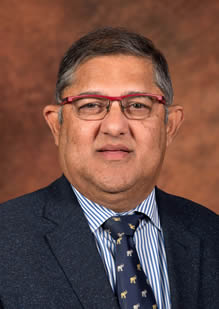Deputy Minister N Singh: address during third EAPASA regional conference 2024
23 October 2024, Durban
Thank you master of ceremonies;
A special thank you to the EAPASA Board for the invitation
Honourable Guests,
Esteemed Environmental Practitioners from our SADC member countries,
Head of Department and Deputy Director-General,
Respected Professional Scientists, Planners, Environmental Inspectors, and Environmental Assessment Practitioners,
Ladies and Gentlemen,
In a world facing the undeniable reality of climate change, the decisions we make today will define the future of our region for generations to come. It is with immense pleasure that I join you today to officially open the 3rd EAPASA SADC Regional Conference 2024 here in KwaZulu-Natal—a province that has faced its share of natural disasters as a result of factors that can be attributed to climate change. The city of eThekwini is a fitting host for this important event, as it continues to find innovative solutions to mitigate and adapt to the recurring impacts of climate-related events, such as the devastating floods that have become an almost annual occurrence.
As we gather in this critical forum, it is important to acknowledge the pressing need for urgent action on climate change, both within our national borders and across the region. South Africa’s Just Energy Transition (JET) programme has emerged as a crucial response to the climate crisis, setting an ambitious course for our nation to shift away from coal while building a low-carbon, climate-resilient economy. The JET programme has already made strides in diversifying our energy mix by investing in renewable energy sectors such as solar, wind, and green hydrogen. We have closed some coal plants and retrained workers, ensuring that the transition is just and inclusive. This transformation is more than just an energy strategy; it is a fundamental reimagining of our future, one that presents profound opportunities for collaboration with SADC countries. By working together on cross-border energy projects, technology sharing, and capacity building, we can build a united front that not only mitigates climate change but also spurs economic growth and energy security across the region.
This brings us to the significance of regional cooperation, which is essential in our quest to balance environmental sustainability with economic development. This year marks six years since the Department of Forestry, Fisheries, and the Environment appointed EAPASA as the sole registration authority under Section 24H of the National Environmental Management Act (NEMA). It is truly remarkable to witness how, in just six years, this young organization has successfully convened SADC members for the third time in such a short period. This achievement speaks to the tremendous commitment to our region and the greater cause of environmental stewardship.
As we implement our individual laws and regulations, we must remain mindful that our true success will be measured by how well we collaborate. I urge you to envision the SADC region as a unified entity—one where our systems are integrated and harmonized to enable development that benefits not only our generation but those to come. The true success of this conference will be measured by how many of our regional members take this opportunity to reflect on their policies and practices, to foster greater regional alignment.
Sustainable development is the common thread that binds us together as a community of nations in this region. We have all made significant progress in establishing legislative frameworks rooted in these principles. However, as environmental practitioners, we are at the heart of these efforts, playing a pivotal role in driving the changes needed to secure regional food security and resilience in the face of climate challenges. The Green and Blue economies offer vast, untapped growth opportunities for SADC and Africa, particularly in waste management and renewable energy. As we explore solar, wind, and hydropower generation, we must recognize that not all nations are at the same stage of implementation. Those who are further ahead have a responsibility to serve as guides and sounding boards for those still developing their capacities.
Africa’s reliance on natural resources, rain-fed agriculture, and inadequate infrastructure makes it particularly vulnerable to the impacts of climate change. Climate-driven events such as droughts and floods have already disrupted agricultural production across the continent, leading to increasing food insecurity. To counter this, it is essential to promote sustainable agricultural practices, improve irrigation systems, invest in agricultural research and technology, and develop resilient crop varieties.
Integrated Environmental Management and social tools provide a comprehensive framework for sustainable development, one that balances economic growth, environmental conservation, and social equity. This integrated approach is vital for addressing the many environmental challenges our continent faces while simultaneously promoting inclusive growth and resilience. By embracing this method, we ensure that development is not only sustainable but also equitable, benefiting both present and future generations.
The time to act is now. The environmental challenges we face do not respect borders or timelines, and every day we delay, the cost to our region and our people increases. As we gather today to deliberate as a regional community, it is essential to keep a global perspective in mind. The work we do here must not only benefit the SADC region but also contribute to broader global efforts in combating climate change and promoting sustainability.
I challenge each one of you to leave this conference with a renewed commitment—not just to reflect on our policies but to take concrete steps toward harmonizing our efforts and turning our shared vision into a reality. Together, we can create a SADC region that thrives on sustainable energy, preserves its natural beauty, and offers a better life for all our people. Let that be the legacy we build together.
As you engage in finding sustainable solutions for our region, I wish you every success. I look forward to returning next year to reflect on the progress we have made together.
Thank you.
For media enquiries, contact:
Peter Mbelengwa
Mobile: 082 611 8197
E-mail: pmbelengwa@dffe.gov.za


